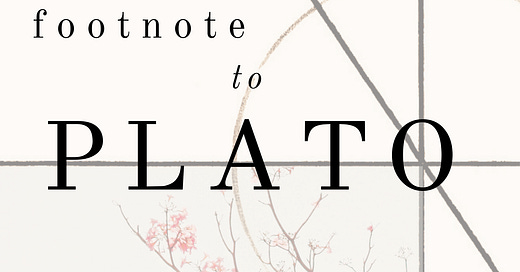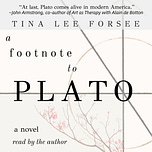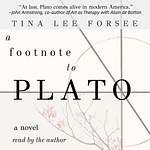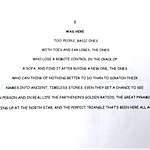Excerpt from Chapter 13, The Spectacular Fight
The Winston group had reached the end of the stinking alley and was weaving through the crowded little plaza with the nightclubs and restaurants, the same one they’d passed coming in from the metro station, when Zeb got a text from his mother. He hung back. “You guys go ahead. I’ll be in in a minute. Save me a seat.”
There was a little space to sit on the retaining wall surrounding the orange tree at the center of the plaza, so he squeezed between a frowning teenager and a couple of thirty-somethings and watched his group go inside. He already knew what the text said—it said Grandma died and gave her time of death—but he re-read the message anyway, just to be sure.
Grandma died at about the same time he’d been sitting on the dark side of the rooftop terrace, around the same time he thought he imagined hearing her voice call out, Where’s Zeb? It was as if she had called out for him at the very moment of her passing. Spooky.
No. Too much to think about.
Passing? What did that mean? Passing from life to where? Everywhere? If he reached out and grabbed a handful of air, would he have her molecules, her atoms . . .
But when he did think about the spooky timing—and how could he not?—he found a good reason to dismiss the idea. Even if it were possible to speak from beyond the grave, Grandma would never haunt him. She just wouldn’t do something like that. Clearly he had haunted himself.
Still.
He started to text his mother back just to say he got the message, but then he stopped. The words that had kickstarted the spectacular fight wormed through his mind once more, only this time he heard his own voice as though it were coming through an overhead speaker: “I’m dealing drugs to pay for school.”
The Spectacular Fight, which took place only last month, was still fresh in his mind. He recalled that his mother had responded to his confession with an impenetrable smirk, as though she were listening to some tiresome but unoffending joke.
“Not just weed,” he’d added, “but coke too . . .”
He’d waited, watched his mother for a reaction.
Nothing.
“Your son is dealing cocaine,” he’d said to his mother, enunciating his words as if she were hard of hearing. “Does that mean anything to you?”
It was with a kind of maniacal intensity that he waited, watched.
Still no response.
Maybe she needed to see the evidence. There happened to be a little baggie in his jacket’s inner pocket, so he raised it and presented it to her like this was Show and Tell. He took a step toward her, a menacing one, like he might just shove it up her goddamned nose.
She didn’t recoil at this, but stood her ground. A real face-to-face showdown.
At close proximity, a detailed topography of her face emerged: the web of parched riverbeds splintering out from her permanent frown, the blotchy patches of scorched earth along her cheeks, the two cloudy-blue cisterns staring back. He searched for anger in them, some spark of defiance, but they were dry. Empty. Vacant. But then her eyes moved to the ceramic figurine, Reading Boy, sitting on top of Zeb’s dresser.
“Well?” he said. “Aren’t you gonna ask me why I’m dealing coke?”
She turned away. Her footsteps pattered down the hall, muting with distance. They did not slap. He followed her into the kitchen where he found her cradling the clunky, nineties-era cordless phone. Each number button beeped a different pitch, all strung together in a nonsense song. He figured she was calling the cops and made no attempt to stop her. Something told him the time for reckoning had come and now he must accept his fate. Of course he was afraid of being arrested, but if his mother thought it the right thing to do, he would not fight her. His arms fell to his sides. The phone rang and rang. In the silences between, he drew long breaths. Submission filled him with terror and relief. Mostly relief.
The ringing gave way to a prolonged silence.
“Hello? You there?” his mother said to whomever was on the other end of the line. She ran her fingers through her hair as she paced the galley kitchen. “You know who this is, right?”
Something in her voice made it clear she hadn’t dialed the police.
The text format you’ve been reading is a sample of what’s available to paid subscribers in a separate email called “FOOTNOTES”. Want access? Scroll down for discount button—20 bucks will get you a full year’s subscription to this book and my husband’s philosophy book, Truth and Generosity: How Truth Makes Language Possible.
The audiobook (podcast) for this entire novel will continue to be free. Or you can buy my book on Amazon.
FREE SUBSCRIPTION includes:
FULL NOVEL PODCAST. So go ahead and start downloading episodes—you won’t get paywalled in the future.
BOOK CLUB QUESTIONS at the end.
I hope you enjoy it so much you’ll take note of the next book I write and maybe even leave a review for this one once you’re done. You can show your appreciation with a tip or upgrade to a:
PAID SUBSCRIPTION, which includes the above and:
FOOTNOTES: my annotated commentary, writing tips, a behind the book look.
BONUS CHAPTER (or two or three) that have never seen the light of day.
STORY ARC: my adaptation of the Hero’s Journey for literary fiction.
COMPLETE AUDIOBOOK DOWNLOAD to listen on Spotify, great for road trips.
MY WARMEST THANKS!
Thanks for listening!
—Tina
Set up your podcast app to start downloading.
Previously on “A Footnote to Plato”…
What happens on the internet stays on the internet. Which meant he could smash his computer to smithereens, but that abominable video would go on living the life of a Platonic idea.
In Chapters 10, 11, and 12…
Just when Isaac discovers the joys of technology, he receives an email that makes him want to toss his laptop over the balcony. Instead, he turns to Zeb for help.
Sarah may have some reservations about disobeying Dr. Fischelson’s orders not to drink, but she gets over them fast. She is, after all, a moderately attractive young woman in a short leather skirt, and all she wants to do is dance.















Share this post